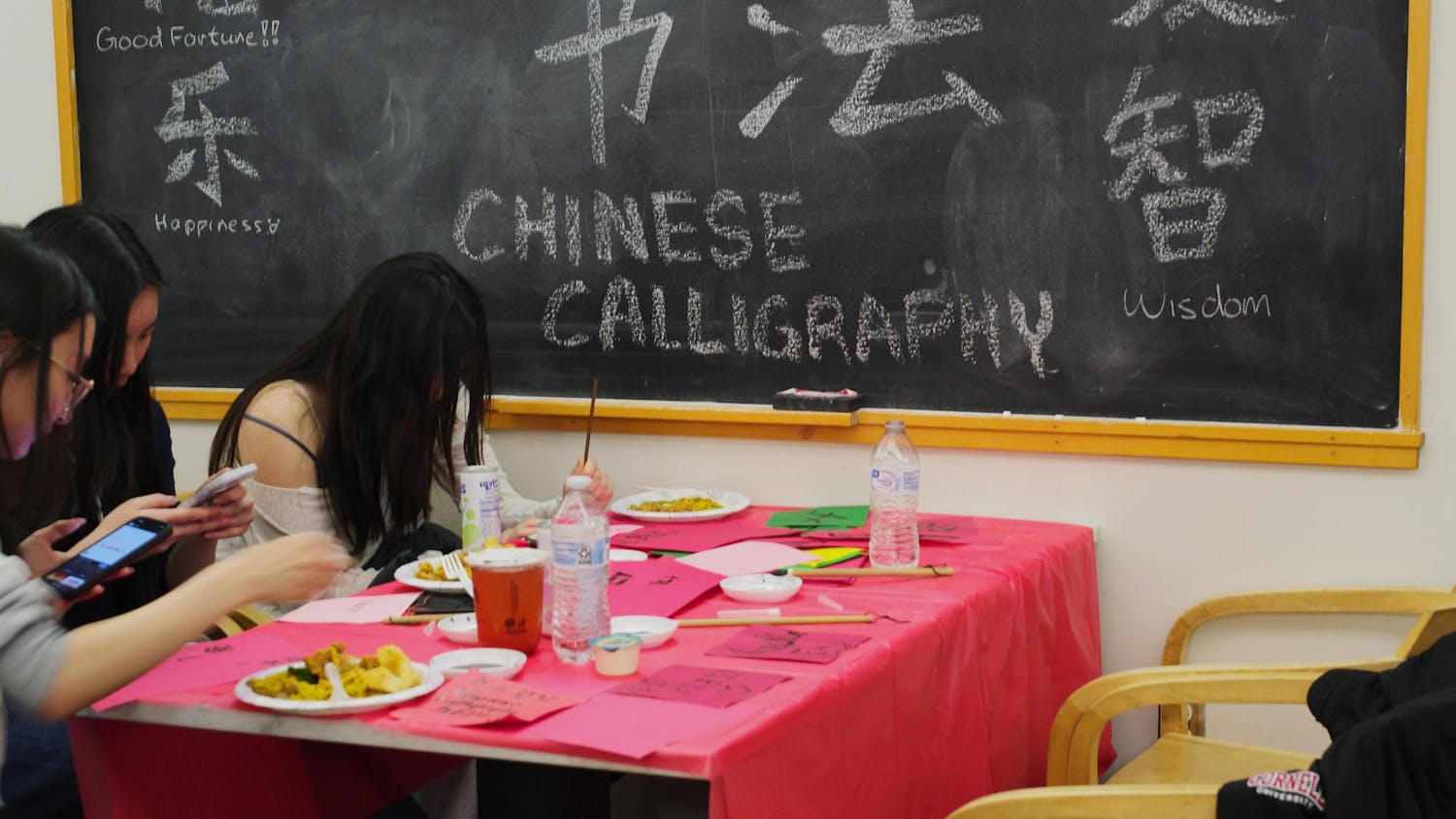After more than a decade since they last qualified, the Cornell University Figure Skating Club plans to jump, spin and spiral at the upcoming 2023 National Intercollegiate Final. The team expressed growing enthusiasm as they are coming out of a pandemic-induced slump in membership.
Hosted by the United States Figure Skating Association, the National Intercollegiate Final is an annual competition featuring the country’s top undergraduate figure skating teams. It will take place from April 14 to April 16 at the University of California in Los Angeles.
Cornell’s team won the NIF during their first visit in 2003. They qualified again in 2008, where they placed fifth overall. The 2022-2023 season is the team’s first qualification in fifteen years.
The team and their coach Robyn Bentley have undergone a lengthy competition process to qualify for the Final. The nation’s undergraduate figure skating clubs are divided into regional leagues of Northeast, Southeast, Midwest and Pacific Coast.
Cornell competes in the Northeast Conference, which held three competitions at New York University, Massachusetts Institute of Technology and at the Skating Club of Utica, New York. At the Utica competition from March 10 to March 12, the team placed third, securing a trip to the NIF alongside Boston University, NYU and Sacred Heart University.
Club members emphasized the team’s self-sufficiency in the competitive league. Lynah Rink’s limited availability hinders competitors’ abilities to frequently practice. The club is granted two full-body practices during the week and one competition-only practice on Saturdays.
Figure skating is not recognized as a varsity sport by the National Collegiate Athletic Association, placing the team into club status. This deprives the CUFSC of direct University funding that would pay for full-time coaching, travel expenses and competition fees. As a result, the club must rely on club dues and donations to fund its endeavors.
Despite these setbacks, CUFSC has seen substantial expansion. Following restrictions on ice time during the COVID-19 pandemic, the club saw a resurgence in membership as the University reopened to normal operations.
Some members attribute this growth to the CUFSC’s recent competitive success.
“There are so many more people for competitions, and we do so much better because of our numbers,” said Grace Yao ’23, a competitor who joined during her freshman year.
Julia Forte ’24, one of CUFSC’s captains, noted the club’s potential for future success.
“The club is mostly freshmen and sophomores, which is good because they will be here [to compete] after we graduate,” Forte said.
The competing skaters have a diverse range of skating experiences. Tory Watnick ’23, Forte’s co-captain, attended a commuter school to pursue her figure skating career before transferring to Cornell her sophomore year.
“Joining [the CUFSC] was a way for me to still be a part of skating, but in a less intense manner,” Watnick said.
Karen Chen ’25 has competed and medaled in multiple national figure skating competitions and the Olympic Games. This year will be her first time competing in the NIF with the CUFSC.
“I know it will be a lot of fun,” Chen said. “At all of these other competitions, we bring a lot of energy and team spirit. We’re definitely going to bring that to nationals as well.”
Other competitors share her optimism.
“Our goal was really to make it here,” Forte said. “Going out there and putting our best foot forward will bring a lot of good publicity to Cornell’s skating.”
Ultimately, the CUFSC members plan to enjoy the competition together.
“I think the beautiful thing about collegiate skating is that it’s a completely different environment than anybody who’s been in competitive skating before has experienced,” Yao said. “The environment is just to enjoy skating and have a good time.”











